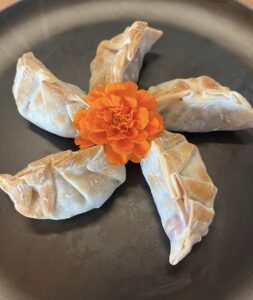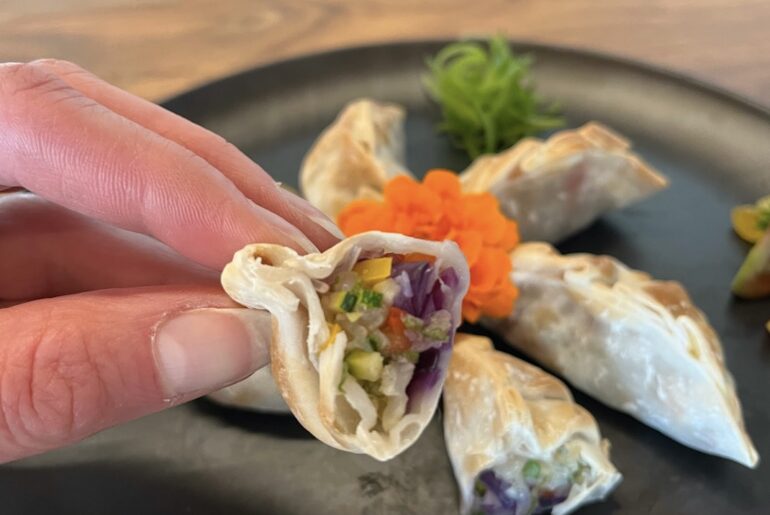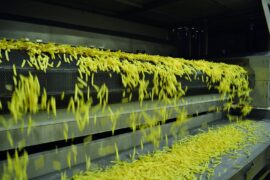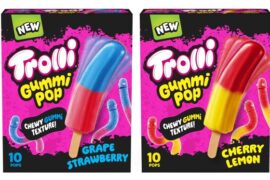Chicago, Illinois-headquartered Aqua Cultured Foods, a startup company that supplies whole-muscle cut seafood alternatives created through microbial fermentation, has developed a fungi-based minced dumpling filling for retail and foodservice market distributors. Alt-shrimp filling is available in a bulk, unseasoned format for customized preparation, which then can be packaged and co-branded.
Traditionally, dumplings are filled with meats, seafood, tofu and/or vegetables. Whether they’re called mandu, jiaozi or gyoza, dumplings are a dietary staple in China, Japan, South Korea and other East Asian countries, and have become increasingly popular elsewhere around the world. The global market for frozen dumplings was valued at US $5.825 billion in 2020, and is expected to rise to more than $10 billion by the end of 2027.

While Aqua Cultured Food’s R&D focus has been on whole-muscle cut, sushi-quality filets with the same visual appeal of high-grade fish, dumplings can be made with off-cuts, trims and less than visually perfect filets for minced fillings. Achieving the proper size and texture for filling can also be done economically at scale in large batches, and requires less fermentation time.
“We’re glad our partners challenged us to work on dumplings, and lucky to have their guidance through the process of perfecting the taste and filling for Asian palates,” said Brittany Chibe, Aqua Cultured Foods’ chief growth officer. “I’m especially happy that this product moves us closer to zero-waste by finding use for our off-cuts, with the added bonus that it’s very efficient to make in volumes appropriate for foodservice.”
Interest around Aqua’s minced fillings is not limited to dumplings, nor to shrimp. Other alternative seafood varieties are likely to follow for applications including spicy tuna sushi rolls, seafood cakes/patties, ravioli and cannelloni.
The company is developing mycoprotein-based faux calamari, shrimp, scallops and filets of fish-free tuna with a realistic taste and texture. Aqua’s fermentation methods do not use any animal inputs, genetic altering or modification, and can be marketed as non-GMO. Unlike plant-based processed foods formulated with starches and protein isolates, its seafood alternatives retain naturally occurring fiber, protein and other micronutrients.
The future for whole cut seafood alternatives via fermentation is almost limitless, according to Anne Palermo, chief executive officer and co-founder of Aqua Cultured Foods, who commented: “Any way that traditional seafood can be used, from raw sashimi to battered and fried popcorn shrimp, our seafood alternatives can be utilized as a one-to-one replacement.”






